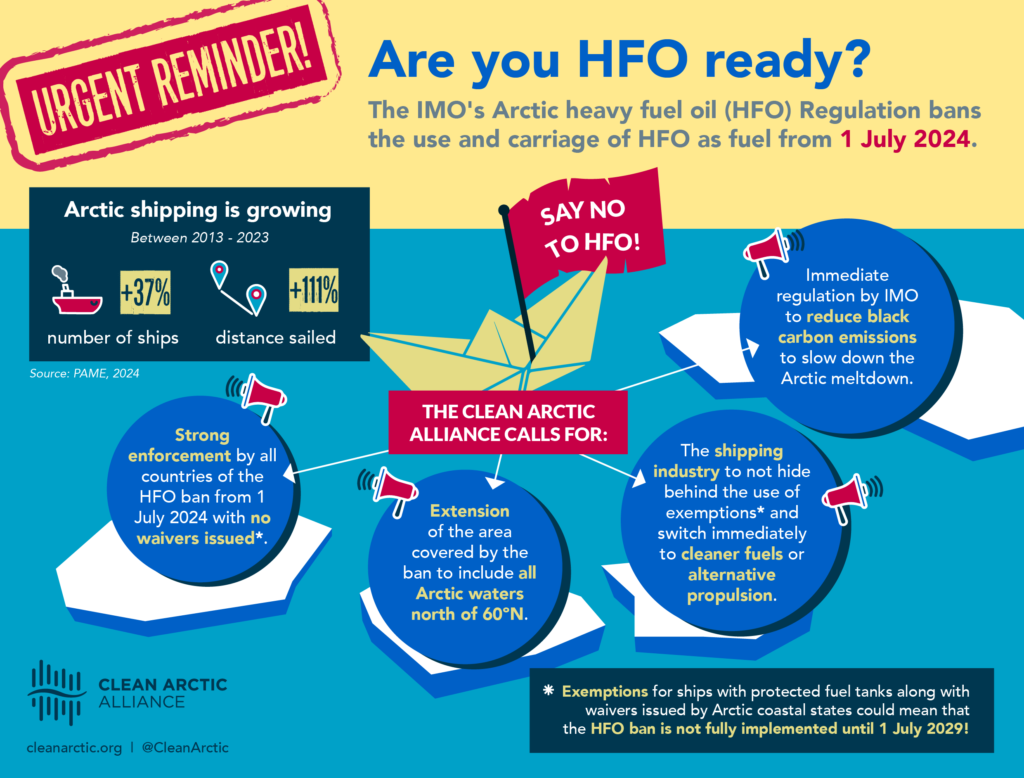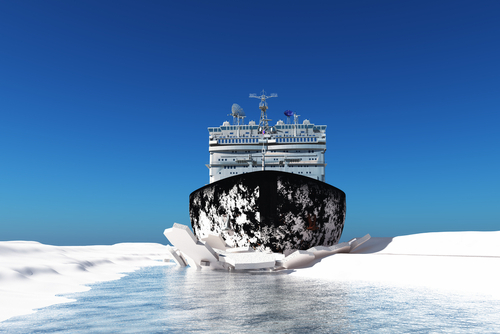On July 1st, a ban on heavy fuel oil (HFO) in Arctic shipping will be implemented by the International Maritime Organization (IMO), however some NGOs such as the Clean Arctic Alliance express scepticism over its effectiveness.
According to Clean Arctic Alliance, this measure aims to protect the Arctic environment from the harmful effects of HFO, including black carbon emissions that accelerate ice melting. However, the effectiveness of the ban is compromised by loopholes that allow waivers and exemptions, delaying its full implementation until 2029. This means a significant portion of Arctic shipping—potentially up to 74%—will continue unaffected.
Recent incidents, such as the fining of the Irish vessel Arklow Wind for carrying HFO in Norwegian waters around Svalbard, highlight ongoing challenges despite local bans. Black carbon, emitted by ships burning oil-based fuels, contributes significantly to climate warming, especially in the Arctic where it accelerates ice melt by reducing the reflective properties of snow and ice, Clean Arctic Alliance notes.

Clean Arctic Alliance urged for immediate and comprehensive enforcement of the HFO ban without loopholes, urging IMO member states, especially Arctic coastal nations, to take stronger action. They propose switching to cleaner fuels like diesel or adopting alternative propulsion methods along with diesel particulate filters to reduce black carbon emissions by over 90%.
Ultimately, the call is for the shipping industry to embrace cleaner practices urgently to mitigate climate impacts and protect the fragile Arctic environment from further degradation.































































